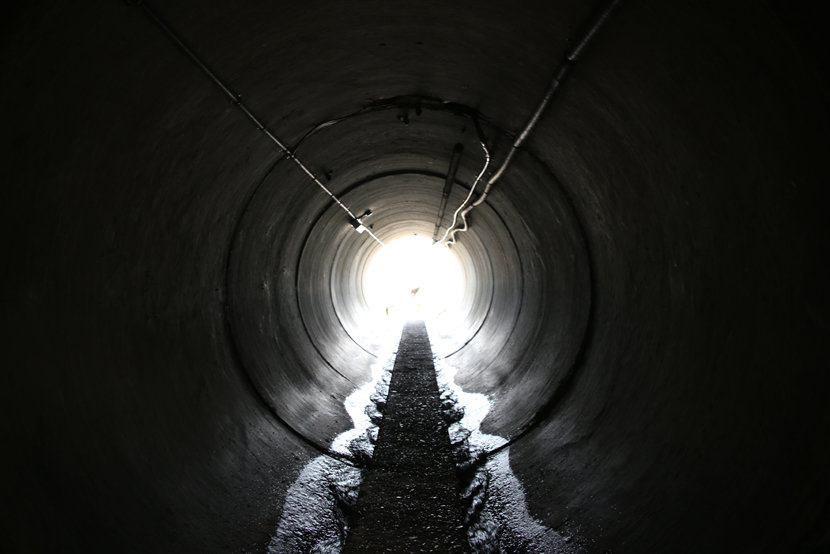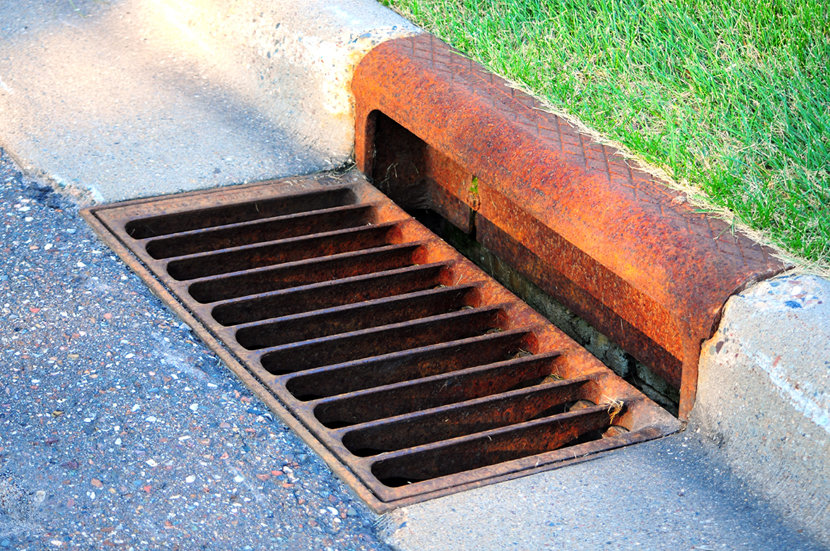Stormwater runoff is rainwater or snow melt that flows over the ground or other surfaces (lawns, fields, paved streets, parking lots, and building rooftops) and does not soak into the ground. As this stormwater runoff flows over the ground or other surfaces it can pick up debris, chemicals, sediment or other pollutants. These pollutants can be carried by stormwater runoff to streams, rivers, and lakes where it may result in water quality issues in these waterbodies.
Under the federal Clean Water Act, the Environmental Protection Agency (EPA) promulgated the Stormwater Phase II Final Rule which requires operators of municipal separate storm sewer systems in urbanized areas to obtain a National Pollution Discharge Elimination Systems (NPDES) Permit. A portion of Highway District No. 4 falls under these regulations and the District's NPDES Permit became effective in October 2009. During the 5-year term of the NPDES Permit, the Highway District must develop a Stormwater Management Program that includes the following six minimum control measures:

Public Education and Outreach
This element targets public education and outreach to help residents and businesses understand how stormwater can be polluted by common activities, increase awareness of the potential impacts to local waterways, and what they can do to reduce pollutants in stormwater.
Public Involvement and Participation
The emphasis of this measure is to offer opportunities for the public to participate in the stormwater program and provide comments that help enhance stormwater program participation and partnerships. This element is intended to further public awareness of stormwater pollution concerns, encourage volunteer community actions emphasizing stormwater pollution prevention, and community efforts to restore or protect local waterways.
Illicit Discharge Detection and Elimination
Illicit discharges are generally non-stormwater flows that contain pollutants that enter the storm drainage system. Examples include flows from failing septic systems, improper sewage connections to storm sewer systems, or spills of pollutants that enter the storm drainage system. This portion of the program is aimed at finding and removing these pollutant sources from the storm drainage system.
Construction Site Stormwater Runoff Control
Sediment from uncontrolled stormwater runoff from construction sites can have a significant impact on the water quality of receiving streams, rivers, and lakes. This construction site stormwater runoff control aspect of the program focuses on the Highway District managing and regulating construction sites with disturbed areas of one acre or larger to prevent or minimize erosion or sediment movement off-site.
The following websites provide stormwater Best Management Practices Manuals that are approved as guidance in preparing Stormwater Pollution Prevention Plans submitted to the Highway District:

Post-Construction Stormwater Management
While the Construction Site Stormwater Runoff Control element focuses on temporary measures to address water quality issues during construction, Post-Construction Stormwater Management deals with permanent stormwater Best Management Practices (BMPs) for stormwater quantity and quality from new development or re-development. The current permanent stormwater BMPs use structural (i.e. on-site runoff treatment, storage, and infiltration) and non-structural (i.e. vegetated buffer strips, reduced impervious surfaces) as means to address stormwater quantity and quality.
Pollution Prevention and Good Housekeeping
This measure targets preventing pollution from the Highway District's operations. Activities from Highway District operations and facilities have the potential for polluting stormwater if good practices or procedures are not in place.
In addition, the Highway District has annual reporting requirements.
Information
Information on Highway District No. 4's stormwater management program, NPDES stormwater permit, and public education materials are available below for you to download.
Public Education & Outreach
Specific potential stormwater pollution concerns have been targeted, including residential lawn & garden practices, failing septic system, pet waste, and construction site runoff. The following materials provide information about these concerns and how to reduce pollutants from these sources. (Printed copies of these materials are available at the Highway District's office.)
Stormwater Management Program
Illicit Discharge Detection & Elimination
Post-Construction Stormwater Management
The ITD and IDEQ BMP Manuals listed above under Construction Site Stormwater Runoff Control are approved for use in selecting and designing post-construction stormwater management facilities within the District.
Pollution Prevention and Good Housekeeping
Pollution Prevention and Good Housekeeping related information and documents can be found in the District's Stormwater Management Program.
Local Agency Stormwater Programs
Stormwater Concerns and Comments
In case of emergency, call 911.
For non-emergency, stormwater-related concerns or comments, submit the form on this page.
Please be as detailed as possible regarding the location (street address, subdivision, crossroads) if it relates to a concern at a specific location.